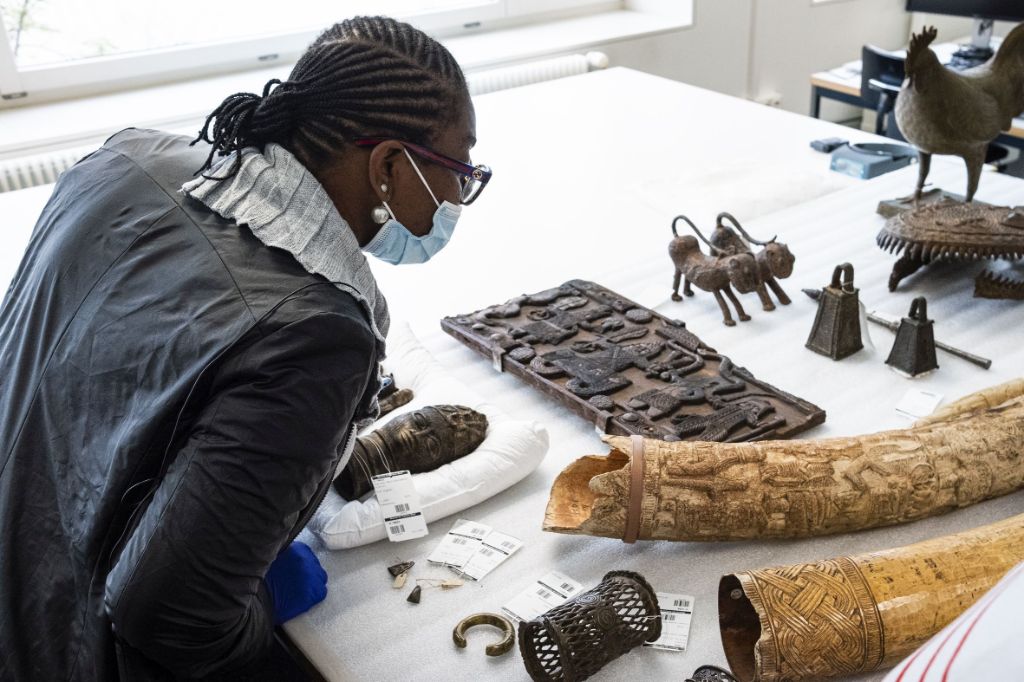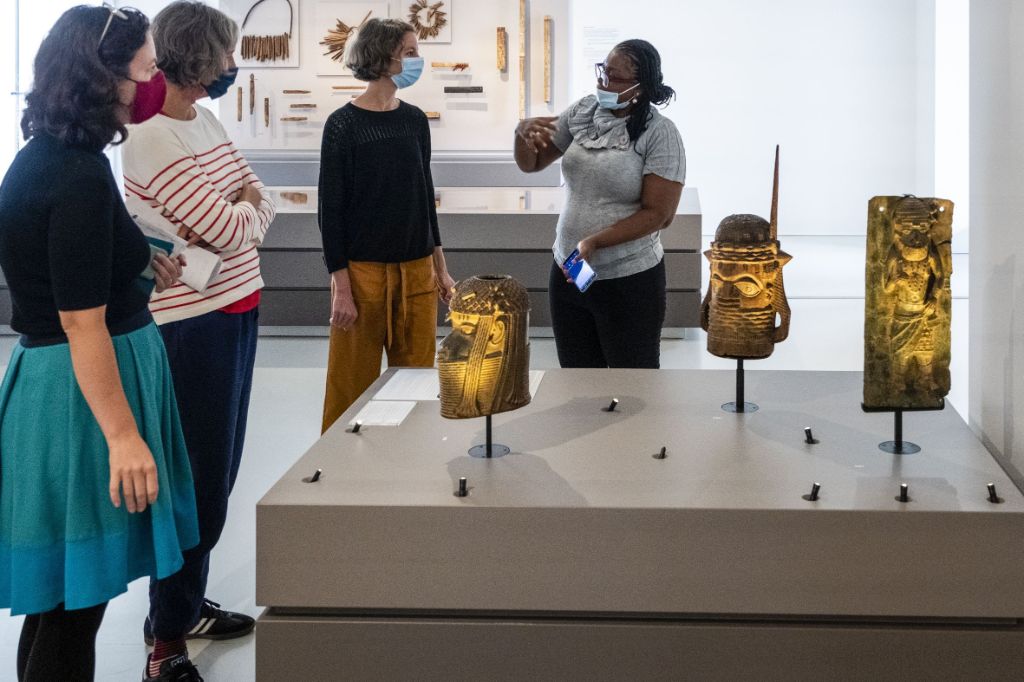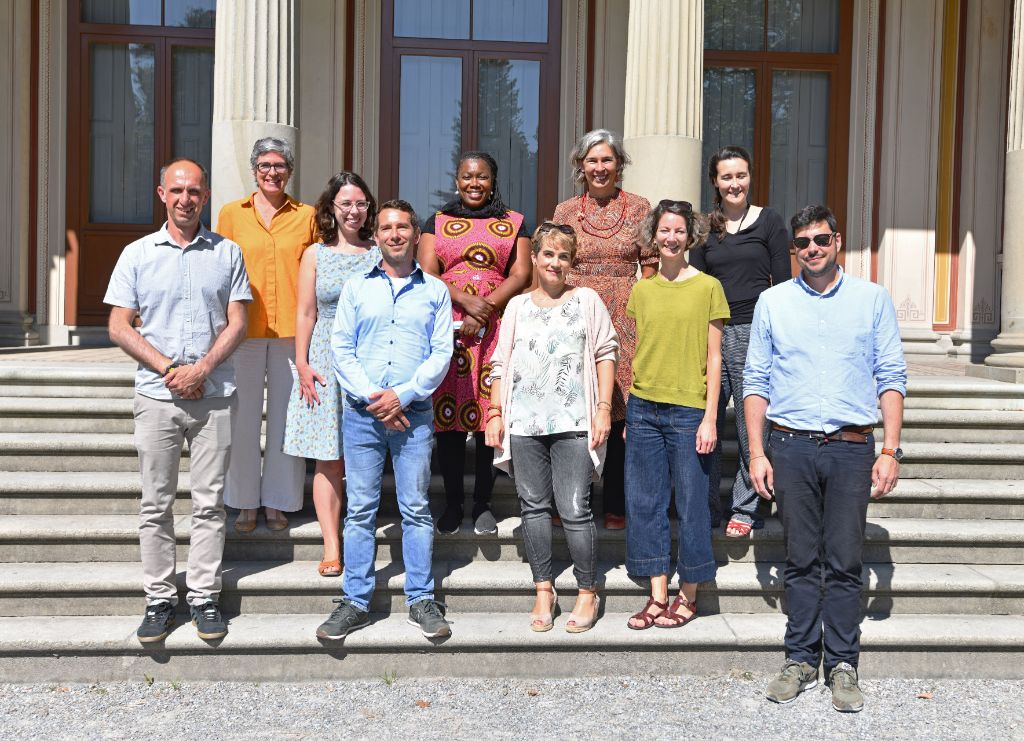Cooperation and dialogue
Research visit from Nigeria
The Swiss Benin Initiative (BIS) is partnering with the historian Dr. Enibokun Uzebu-Imarhiagbe, an academic based at the University of Benin in Edo State. As researcher, she is contributing a Nigerian perspective to the project, both in terms of the origin, meaning and provenance of the works, and their ongoing significance in Benin culture today.

Enibokun Uzebu-Imarhiagbe is studying objects from the Benin collection in the depot of the Museum der Kulturen Basel © MKB, Omar Lemke

